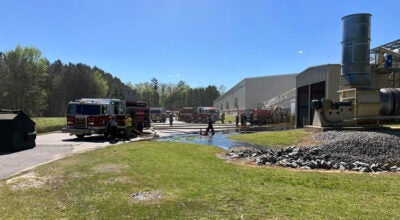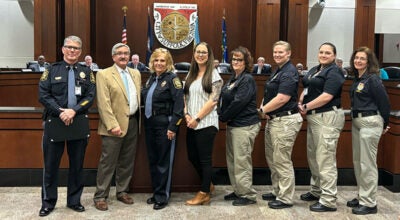SPSA sells incinerator
Published 11:27 pm Friday, November 20, 2009
The Southeastern Public Service Authority sold its waste-to-energy plant Friday, according to a news release from the regional waste disposal authority.
SPSA Executive Director Rowland Taylor signed the agreement with Wheelabrator Technologies for the sale of the waste-to-energy facilities in Portsmouth. Wheelabrator is paying $150 million cash for the buildings, land, vehicles and other assets associated with the plant. SPSA intends to use the money to pay off part of its significant debt — currently about $240 million.
In deciding to sell the plant to Wheelabrator, the authority’s board of directors also voted to turn down offers to sell the authority in its entirety. ReEnergy Holdings, LLC and Wheelabrator had submitted proposals to purchase the entire authority.
ReEnergy, the company that began the process of proposals to purchase the authority, issued a statement Friday through its local public relations firm.
“It has been a great pleasure to work with the people of Hampton Roads and SPSA’s member communities on our plan to take waste management and recycling in the region into a future of predictability, stability, and enhanced environmental performance and sustainability,” said the release. “We had certainly hoped to become a long term corporate citizen of the region.”
Franklin City Council member and SPSA board member Barry Cheatham described in a letter why he voted against the all-asset purchase offer and for the Wheelabrator waste-to-energy purchase.
“During this decision-making process, SPSA had two separate and independent financial consultant groups evaluate the offers for complete sale,” Cheatham said. One of the groups was contracted by SPSA, the other by the chief administrative officers of the eight member localities.
“These groups also evaluated the offer to sell the (waste-to-energy) plant alone,” Cheatham continued. “Interestingly, both groups reached the same conclusions — that the acceptance of the offer for the sale of the (waste-to-energy) plant alone was the most appropriate choice.”
Cheatham outlined his reasons for voting against a complete sale. The member communities were not interested in an additional time commitment, he said, and an offer from ReEnergy proposing no additional commitment would not save the communities any money. Furthermore, the ReEnergy offer required private financing it was not yet assured, and did not address the issue of banning out-of-state refuse, which Cheatham said brings income but “causes a multitude of other problems.”
Ultimately, Cheatham said, the clear choice was the Wheelabrator waste-to-energy offer.
“Wheelabrator brings with it a long history of operating such a facility,” Cheatham said. “This offer will reduce our debt almost immediately.”
The full documents regarding the sale of the plant can be viewed at www.spsa.com.





